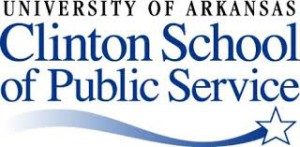In Little Rock Arkansas, students from the University of Arkansas Clinton School of Public Service will be completing several public service projects in conjunction with a number of agencies, community programs and nonprofit organizations. This comes as a part of the Master of Public Service curriculum where students earn academic credit for their work.
Students will be participating in efforts to curb senior hunger, provide service to children and families, and eliminate housing barriers for individuals in need. The school’s affiliate organizations are spread across the state, being able to reach a wide variety of communities such as Hot Springs, Newport, Monticello and Helena-West Helena.
The unique program being offered by the Clinton School allows students to not only address questions of what, where and how to help, but it allows them to practically work through action plans of implementation. Hands on experience like this is hard to come by in an academic setting. The program is an outcome driven experience with end goals of effectiveness in mind for each team of students, 10 teams in all.
The Clinton School classifies this practice under the Master’s degree program which requires three public service projects to be completed. It is referred to as their Practicum Program which includes:
Local Partner Development, which cultivates a relationship with the Arkansas Foodbank. Their mission is to help enhance senior services throughout the community. The teams focus on assessing community resources, bringing groups together and capitalizing on resources to ensure optimal service.
Improving Student Achievement with School Breakfast partnering with the Arkansas Relief Alliance. Student helps to research the effect that breakfast has on scholastic aptitude within school systems.
Housing Accessibility Study partnering with Central Arkansas Reentry Coalition. Studies will be conducted on the housing demand and supply for citizens of the Little Rock community.
To read the full list of the Practicum Program, please see the original article, here.
